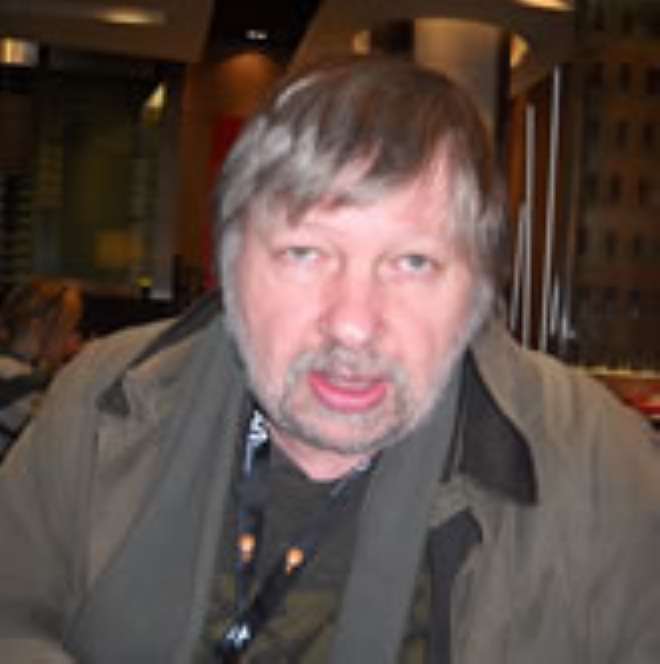Nollywood needs to improve on the quality of its offerings —Guido Huysmans (Belgian Film Director)
The hope of one day seeing a movie from the Nigerian motion picture industry, otherwise known as Nollywood, participating in an international film festival is unlikely to happen anytime soon. According to Guido Huysman, Director of the African Film Festival, who was at the 60th Berlinale (Berlin Film Festival) held in Berlin, Germany, the local film industry still has a lot of catching up to do, despite being acclaimed the second largest movie industry in the world.
“First of all, what I have found out from the Nigerian film industry is that it has already found its self-confidence; it believes it can make films. Perhaps not like Hollywood where you need like $10-20million or euros; what the government now need do is to make the infrastructures available for the practitioners; it will come one day but the fact is that Nollywood has found its self confidence.”
Huysman's main interest is to show the films and stories by Africans like it should be told by Africans and for Africans and the rest of the world.
“Our film festival came about when we discovered that no African film was in our media” says Huysman, a Belgian resident in Flanders. “People were afraid of African films; the general perception was that nobody makes decent things in Africa.”
With that at the back of his mind, Huysman and his team decided to start out showing films from Africa. They commissioned some distributors to source films produced on the continent, offering the usual distribution fees so that the rights owner would recover part of the production costs. For his film festival, Huysman has traversed the Congo, the Democratic Republic of Congo, Rwanda, Mozambique, and South Africa, while his colleagues have been to Kenya, Uganda and Tanzania.
How come he has not found it necessary to seek out Nollywood, the Nigerian film industry, recently named the largest film producer worldwide by a UNICEF report? “The thing with Nigerian films is that sometimes the script is written in a week and the movie is shot in perhaps two weeks,” Husman, 54, says. “If you like, for curiosity, you can show three or four Nollywood films but you cannot build your public on Nollywood films--they will run off.”
The big picture, according to Huysman, is to create an African Hollywood where investors can put their money and make it back, which is something many African film making machinery cannot deliver. So what does he propose? “The government should provide the infrastructures; they should provide good roads and the needed infrastructure to make quality films,” he says.
Huysman saw his first ever African movie in 1974; it was Loc Wilder by Sen Ben Usman. “I discovered that a lot of films were promoting the French and colonial culture and not the African culture,” he says. When he realised that not many films were promoting African ideals, he started a film club about non-Western films in 1975 while at the university. “At that that time we screened 10 -15 African films, including some from Latin America, Russia and so on.”
Between 1985 and the present, Huysman guesses that he has seen on the average 50 African films in a year. And he adds the fact that not many African films make it to the major international film festivals (like the Berlinale, for instance) may not necessarily be because they lack substance. Sometimes, it could be due to forces beyond their control.
“First of all, a lot of film festivals feel they must have well known names and they have a publicity circuit which is the strategy of promoting companies. We saw here in Berlin an African film Sometimes in April about Rwanda by the Haitian filmmaker Raoul Peck. The film before that was a very mediocre American film; then there was about 35- 40 televisions stations and lots of print journalists covering the press conference in the room. When the mediocre American film left, Raoul Peck came with all his stars and crew and suddenly there were just five journalists and no television. And I wondered: what's the deal in inviting these people?”
It's been said that Africa has a lot of stories that it is not telling widely enough. Is Huysman convinced that Hollywood is doing a great job of telling the African story? “Never forget that Hollywood tells stories for an audience outside of Africa. Hollywood is an industry that is out to make money for itself, not for Africans, not for Russians and neither for Belgians.”
And he has a word of advice for stakeholders in Nollywood who may be interested in participating at his festival. “The criteria are that we want to show films to a public and we like that the public comes back. The film show should be real theatrical and we need a good film. It can be done in any language and can be subtitled in English or French or any language. But it has to be a good film.”
Latest News
-
 "If You're For Me, I Am For You" - Cubana Chief P
"If You're For Me, I Am For You" - Cubana Chief P -
 "3 Days To Go" - Femi Adebayo Urges Fans To Get S
"3 Days To Go" - Femi Adebayo Urges Fans To Get S -
 "Stop Asking Me Questions About Speed Darlington"
"Stop Asking Me Questions About Speed Darlington" -
 "Benue Is The Most Underdeveloped State I've Ever
"Benue Is The Most Underdeveloped State I've Ever -
 Stan Alieke Urges Young Professionals To Take Lin
Stan Alieke Urges Young Professionals To Take Lin -
 Chizzy Alichi Teases Fans With Baby Reveal, Promot
Chizzy Alichi Teases Fans With Baby Reveal, Promot -
 "I'm Not Wearing Makeup From July 4th Till Decemb
"I'm Not Wearing Makeup From July 4th Till Decemb -
 "Stop The Challenge Of Mocking Kids With Down Syn
"Stop The Challenge Of Mocking Kids With Down Syn -
 Regina Daniels Celebrates Sons As They Mark Birthd
Regina Daniels Celebrates Sons As They Mark Birthd -
 Speed Darlington Threatens To Sue NAPTIP For Defam
Speed Darlington Threatens To Sue NAPTIP For Defam














